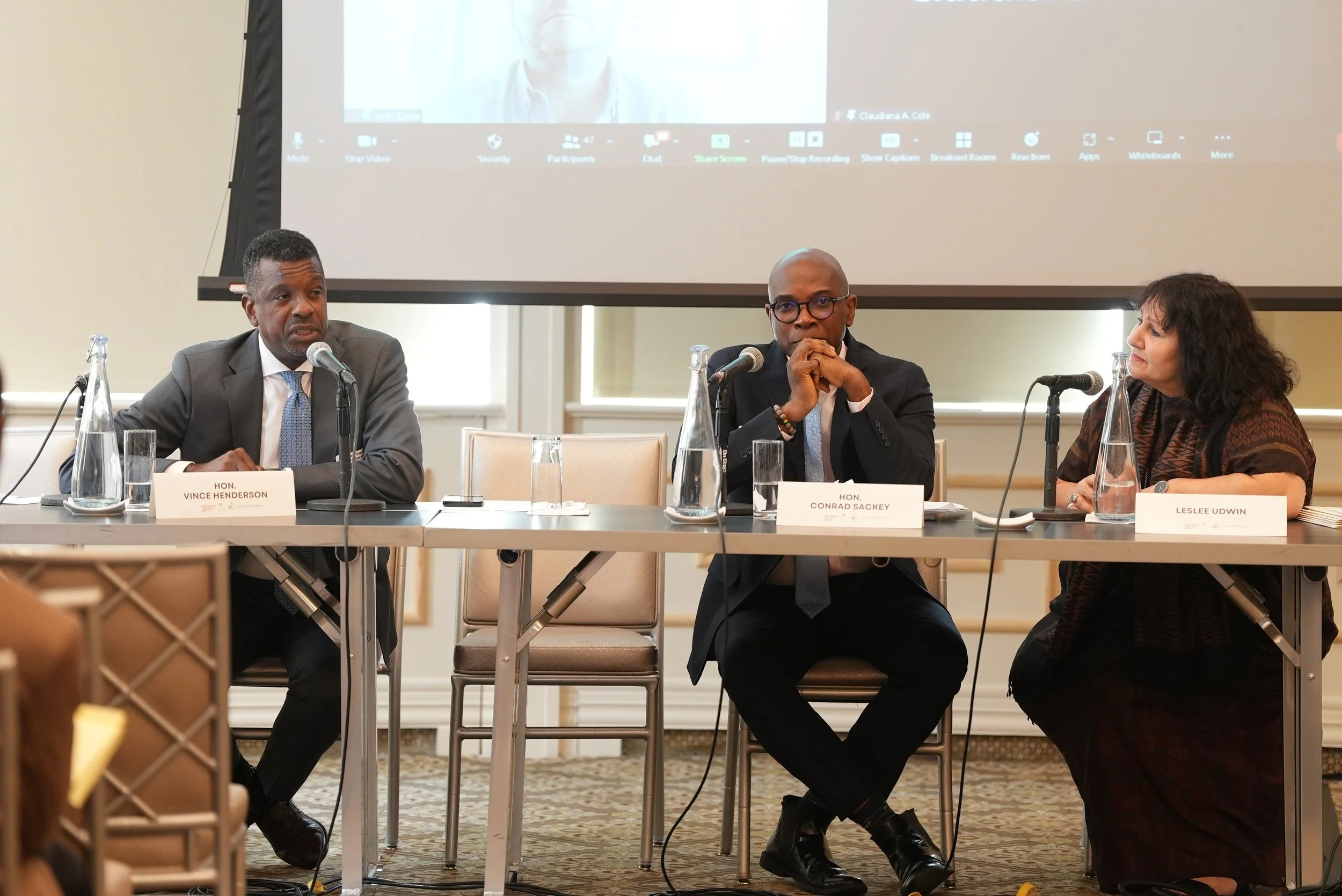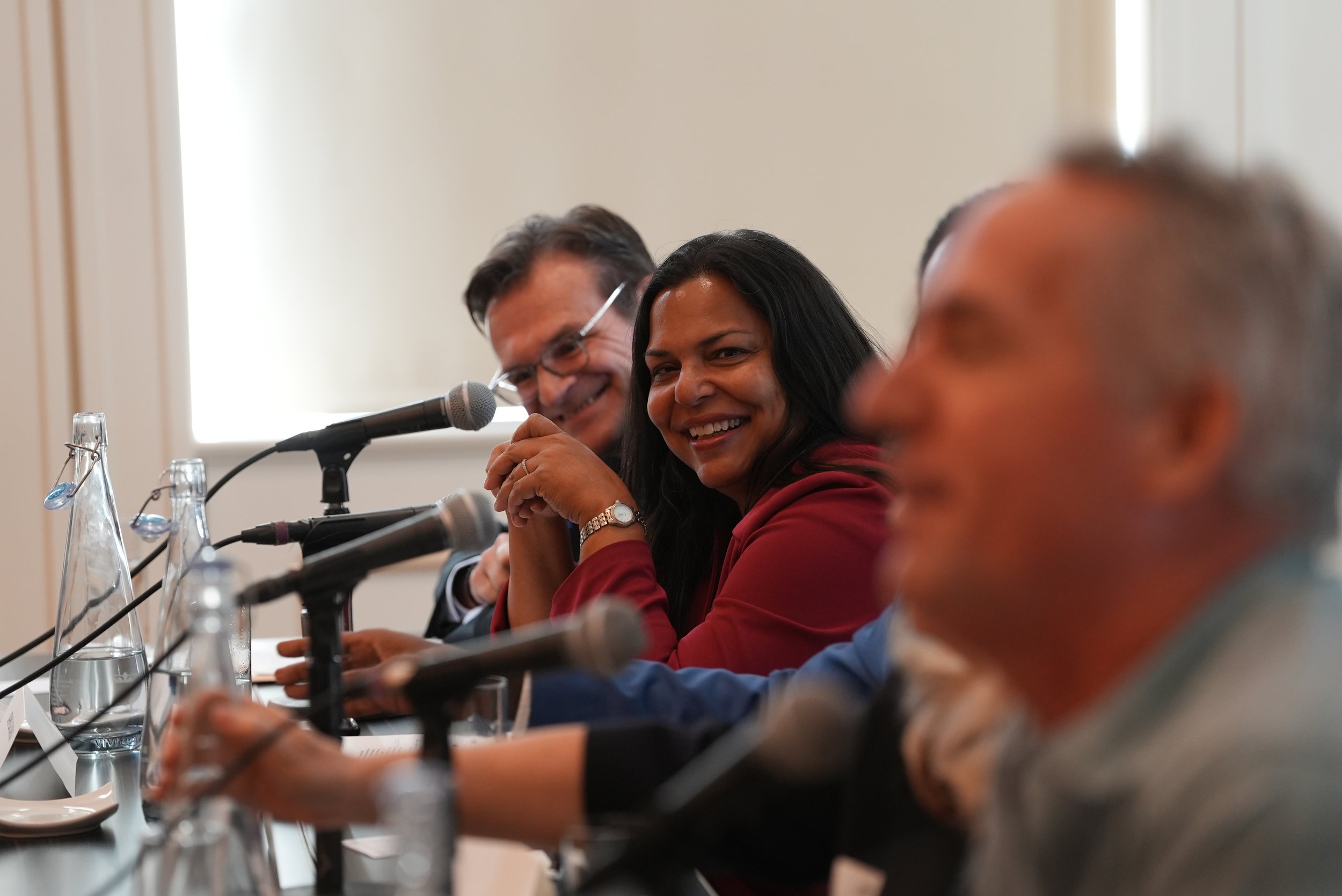How to “Educate a Child”: Reflections from policy and practice
On September 17, 2023, alongside the SDG Summit and UN General Assembly in New York, Mission 4.7—in partnership with the Education Above All Foundation and the Center for Sustainable Development at Columbia University—inaugurated the “Educate a Child” lecture series with a session focused on foundational learning in the 21st century, redefining education in the age of a climate crisis, and how we can provide quality education in inclusive ways. The series is designed to build upon the global dialogue and momentum created by the UN Transforming Education Summit in September 2022, and will be a space to explore the foundational, ethical, theoretical, and philosophical underpinnings of what Transformative Education entails to set the agenda for Transformative Education leading up to COP 28.
The event began with opening remarks from Radhika Iyengar, Mission 4.7 Secretariat Chair and Director of Education at the Columbia University Center for Sustainable Development; Fahad Hamad Hassan Al- Sulaiti, CEO of the Education Above All Foundation; Ban Ki-moon, former UN Secretary-General and Mission 4.7 Patron; and Hugh McLean, Senior Advisor at NORRAG. They discussed the need to rethink what we mean by “foundational learning” in a world where students will need to face with increasingly complex challenges.
A high-level Ministerial Panel followed.
Moderated by Leslee Udwin, Founder of Think Equal, the panel featured a wonderful discussion by the Hon. Claudiana Cole, Minister of Basic & Secondary Education of The Gambia; the Hon. João Costa, Minister of Education of Portugal; the Hon. Vince Henderson, Minister of Foreign Affairs of Dominica; the Hon. Jose Mauricio Pineda Rodriguez, Minister of Education of El Salvador; and the Hon. Conrad Omalikeh Sackey, Minister of Basic and Senior Secondary Education of Sierra Leone.
“What bothers me the most is that, many times, these questions are phrased as, ‘Either we do literacy and numeracy, or we do social-emotional competencies. Either we do a knowledge-based curriculum, or we do a whole-child approach to the curriculum.’ But these things do not have to be disjunctive. The best way to put it is, we need it all.”
Next, a technical panel, moderated by UNICEF’s Robert Jenkins, presented practitioner perspectives from Giovanni Bassu, Deputy Director of UNHCR New York; Harry Patrinos, Senior Adviser, Education, at The World Bank; Jo Bourne, Chief Technical Officer at the Global Partnership for Education; Rajeev Rajam, Founder & CEO of Globe From Home; and Urmila Sarkar Deputy Director of Programmes at Generation Unlimited.
“You can’t just teach climate education by talking about facts and figures. It has to go beyond. It has to include an awareness of global cultures, it has to include global kinship and an understanding of our oneness, and to be able to leverage that human oneness to build a sustainable future.”
Jeffrey Sachs, Mission 4.7 Co-chair and President of the Sustainable Development Solutions Network, closed the formal panels with an impassioned cry for more funding for education, especially in poor countries where the school-age population is proportionally high.
“Education above all. I can tell you: it’s the most important investment, from every point of view, for a society. There’s nothing more important.”
The day concluded with working sessions and the recognition of Eco Ambassador youth advocates from around the world.
Watch the recording below.
The aim of the Educate a Child Lecture Series is to bridge policy and practice with a summary document that address key findings. This includes ecological, ethical, value-driven characters and considerations that go from being ideals into what will be practiced norms and encouraged practices in learning communities in the scope of this partnership and beyond.






